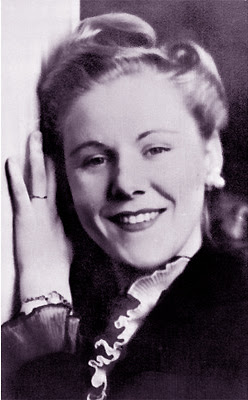by Nomad
_-_Google_Art_Project.jpg/300px-Albrecht_D%C3%BCrer_-_Lot_and_His_Daughters_(reverse)_-_Google_Art_Project.jpg) Despite a host of serious problems in the state, the minds of the Republicans in the Michigan Senate were focused on passing a dubious anti-sodomy law. But what is the truth behind the Biblical story of Sodom? Who are the real Sodomites?
Despite a host of serious problems in the state, the minds of the Republicans in the Michigan Senate were focused on passing a dubious anti-sodomy law. But what is the truth behind the Biblical story of Sodom? Who are the real Sodomites?
Michigan and SB219
With so many things going wrong in that state, you'd think Michigan legislators would have their hands full. You'd think they would have no problem finding serious issues to tackle.
However, you'd be wildly incorrect.
Last week, legislators decided that it was much more concerned with the sex practices of its citizens than with those boring issues. The state Senate passed SB 219 that, as one critic says, "effectively reaffirms the state's unconstitutional law making sodomy a felony punishable by up to 15 years in prison."
If the person is already a sex offender, violations are punishable by life in prison.
If the person is already a sex offender, violations are punishable by life in prison.
Michigan is one of more than a dozen states that still have sodomy bans on the books, despite the U.S. Supreme Court's 2003 ruling in Lawrence v. Texas declaring them unconstitutional.
The Court's decision in the Texas case ruled that intimate consensual sexual conduct was part of the liberty protected by substantive due process under the 14th Amendment. As Wikipedia explains:
Lawrence invalidated similar laws throughout the United States that criminalized sodomy between consenting adults acting in private, whatever the sex of the participants.
Nobody told the Michigan legislators, it seems.
While most people see this as primarily directed at gay couples, the laws criminalizing oral and anal sex can apply to both same-sex or different-sex couples.
This law was deceptively attached to laws protecting animals from abuse. It should be mentioned that one progressive blog, Eclectablog, claims that this isn't an anti-sodomy law at all but a law designed to "prohibit convicted animal abusers from adopting another animal for five years." In that case, it is merely a badly-written law. Here's the sentence that has raised objections:
A person who commits the abominable and detestable crime against nature either with mankind or with any animal IS guilty of a felony, punishable by imprisonment for. not more than 15 years
The rather old-fashioned phrase, "the abominable and detestable crime against nature" in this context would certainly be a sexual crime presumably with an animal. In short, the crime of bestiality.
However, lawmakers inexplicably added the phrase "either with mankind or animal" which then changes the meaning to unnatural sexual acts, the classic definition of sodomy. If the state had repealed its old sodomy laws, it would be much easier to dismiss this as just a poorly-written law.
However, lawmakers inexplicably added the phrase "either with mankind or animal" which then changes the meaning to unnatural sexual acts, the classic definition of sodomy. If the state had repealed its old sodomy laws, it would be much easier to dismiss this as just a poorly-written law.
Since 2014, the Republicans in Michigan have held a strong majority in the State House and Senate. They can do whatever they want without much opposition.
Pandering to the Christian Right has now, critics say, devolved into enforcing baby-making sexual practices at a state level. Strictly speaking, every other form of sex could be considered "unnatural." (Even sex using contraceptive is technically unnatural.)
Pandering to the Christian Right has now, critics say, devolved into enforcing baby-making sexual practices at a state level. Strictly speaking, every other form of sex could be considered "unnatural." (Even sex using contraceptive is technically unnatural.)
But if sodomy is the thing that really captures the imagination of the Michigan Republicans, then perhaps they should delve a little deeper in the story of the Sodomites and why, according to the Bible, God decided to destroy them.














